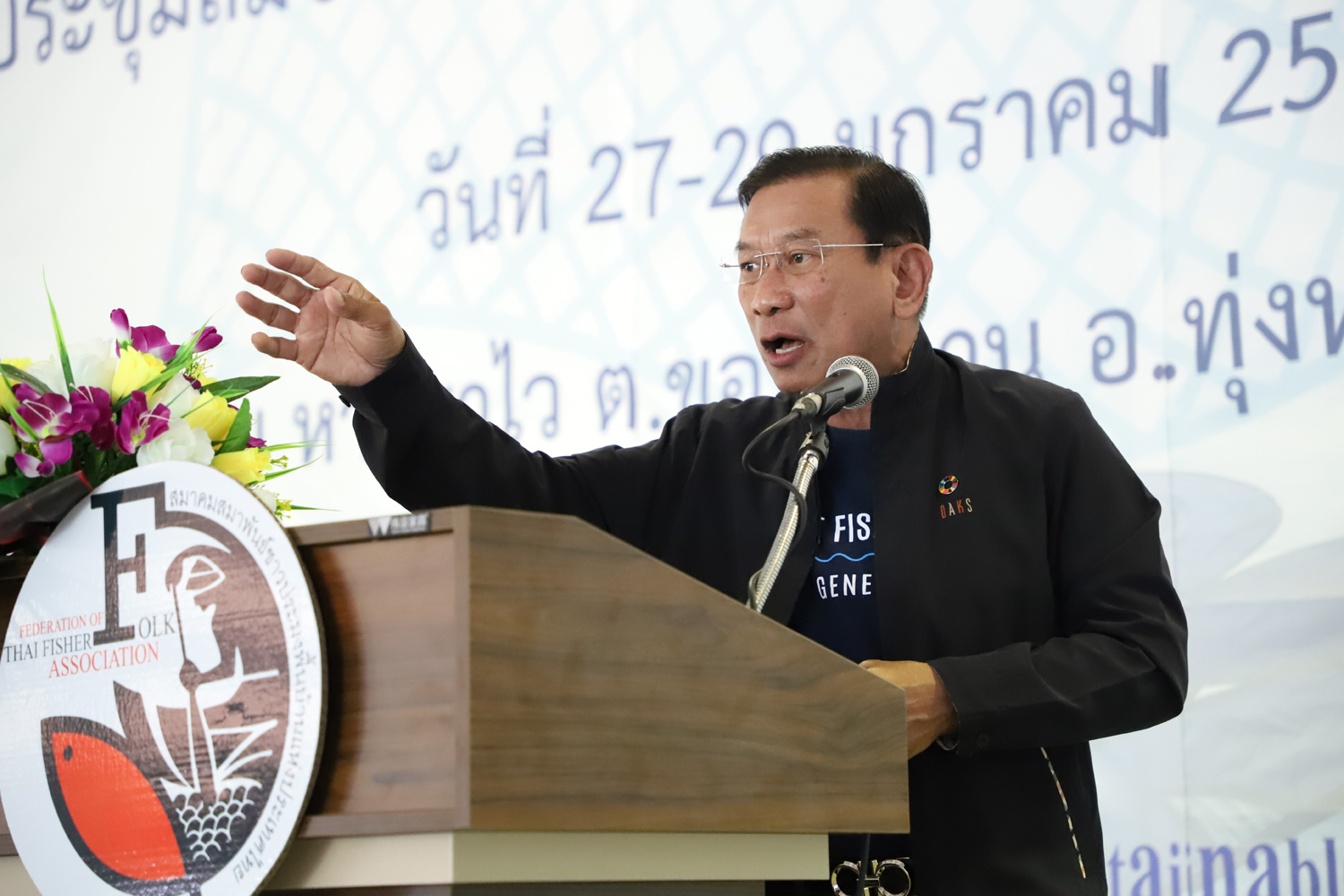
Federation of Thai Fisherfolk Association and Southern Fisherfolk Women Association from 22 provinces along with 51 organisations recently convened 7th National Fisheries Assembly of Thailand. The conference – which took place from 27 to 29 January 2020 at Hat Rawai Public Park, Khon Khlan Sub-district, Thung Wa District,
Satun – was led by Chairperson of the Senate Standing Committee on Agriculture and Co-operatives, General Chatchai Sarikulya along with members of the Committee, Department of Fisheries Director-General Meesak Pakdeekong and Satun Governor Wiranan Phengchan. It was aimed at giving small-scale fishermen from across the country the opportunity to share their experiences and discuss guidelines for managing fishery resources, while addressing issues affecting various aspects of the fishery industry. This year’s event attracted some 300 attendees including fishermen and public and private sector representatives.

Federation of Thai Fisherfolk Association president, Sama Ajemudor, voiced his opinion that local fishery groups meeting with the Department of Fisheries to coordinate strategy and set targets for resource management was a step in the right direction towards achieving sustainability of fishery resources and the stability of fishermen’s livelihoods.
General Chatchai commented that the European Union’s imposition of “yellow card” status upon the Thai fishery industry due to violations of the Illegal Unreported and Unregulated Fishing (IUU) agreement is not important because it is purely symbolic. He would like to see the creation of sustainable fisheries in Thailand, which, as he has repeatedly stressed, would lead to the eventual dismissal of the IUU censure. General Chatchai said he would also like to see a sense of pride instilled in local fishermen, as theirs is a noble career. He wants to avoid any feelings of guilt, or the image of being illegal mariners, so as not to negatively affect their morale.

General Chatchai Sarikalaya also stressed that local fishermen can help by joining together and following established procedures registering as fishermen, which makes it easier for the government to act when there is a problem affecting the industry. Currently, only about 80% of fishermen are registered with the government. They should also properly mark their fishing boats, as well as encourage coastal communities to act in the interest of preserving and protecting fishing grounds. He also suggested that the fishing industry boost its visibility locally and on the international stage in order to showcase their efforts to achieve legitimacy and protect the environment.
Today, Thai fishermen are reporting larger catches of fish, shrimp, mussels, and crabs, while species that had been endangered such as whale sharks, dolphins, and sea turtles are making a comeback.
Official data shows that in 2017, Thailand fishermen netted a total catch of 124,654 tonnes, reaching 126,451 tonnes in 2019 – an increase of nearly 2,000 tonnes. These figures clearly demonstrate that the benefits of compliance with government regulations benefits the entire fishing industry, and the nation at large.

Following the forum, conference participants paid a visit to the Port-in Port-out Center (PIPO) at Ban Pak Bara to monitor the operations of the centre and fisheries checkpoint in Satun, where they offered operational recommendations to relevant agency officials. The PIPO Center plays a crucial role in monitoring, controlling and verifying compliance with the 2017 Constitutional provision that requires the Senate to oversee and revise rules as needed according to Thailand’s 20-year economic strategy, of which sustainable fisheries is an integral part. Relevant departments must also use technology to help build confidence among fishermen, such as boosting maritime patrols as a deterrent to illegal fishing, and building strong relationships with fishermen in the interest of achieving industry- sustainability.